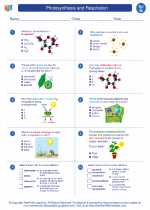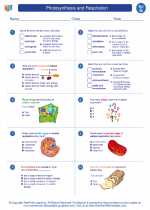Integration of Systems
The integration of systems refers to the interconnectedness and interactions between different systems that work together to perform a specific function or achieve a common goal. In the context of science, this concept can be applied to various biological, ecological, and technological systems.
Biological Systems
In biology, the integration of systems is evident in the interactions between different organ systems within an organism. For example, the respiratory system works in conjunction with the circulatory system to deliver oxygen to cells and remove carbon dioxide. Similarly, the nervous system integrates with the muscular system to coordinate movement and response to stimuli.
Ecological Systems
In ecology, the integration of systems involves the connections between different ecosystems and their components. This includes the flow of energy and nutrients between various organisms and the environment. For instance, the interactions between plants, herbivores, and predators in a habitat demonstrate the integration of different ecological systems.
Technological Systems
In the realm of technology, the integration of systems refers to the combination of different components or subsystems to create a functional whole. For instance, in the field of engineering, the integration of mechanical, electrical, and software systems is essential for the development of complex machines and devices.
Study Guide
When studying the integration of systems, it is important to consider the following key points:
- Identify the components of the systems involved and understand their individual functions.
- Examine the interactions and interdependencies between the systems, and how they contribute to a common purpose or outcome.
- Explore real-world examples of integrated systems in biology, ecology, and technology to gain a deeper understanding of the concept.
- Consider the implications of disruptions or malfunctions within integrated systems, and how these can impact overall functionality.
- Discuss the significance of integrated systems in improving efficiency, adaptability, and resilience in various contexts.
By grasping the concept of integration of systems and its applications across different disciplines, you can develop a holistic perspective on the interconnected nature of the world around us.
.◂Science Worksheets and Study Guides Seventh Grade. Photosynthesis and Respiration

 Worksheet/Answer key
Worksheet/Answer key
 Worksheet/Answer key
Worksheet/Answer key
 Vocabulary/Answer key
Vocabulary/Answer key
 Vocabulary/Answer key
Vocabulary/Answer key
 Vocabulary/Answer key
Vocabulary/Answer key
